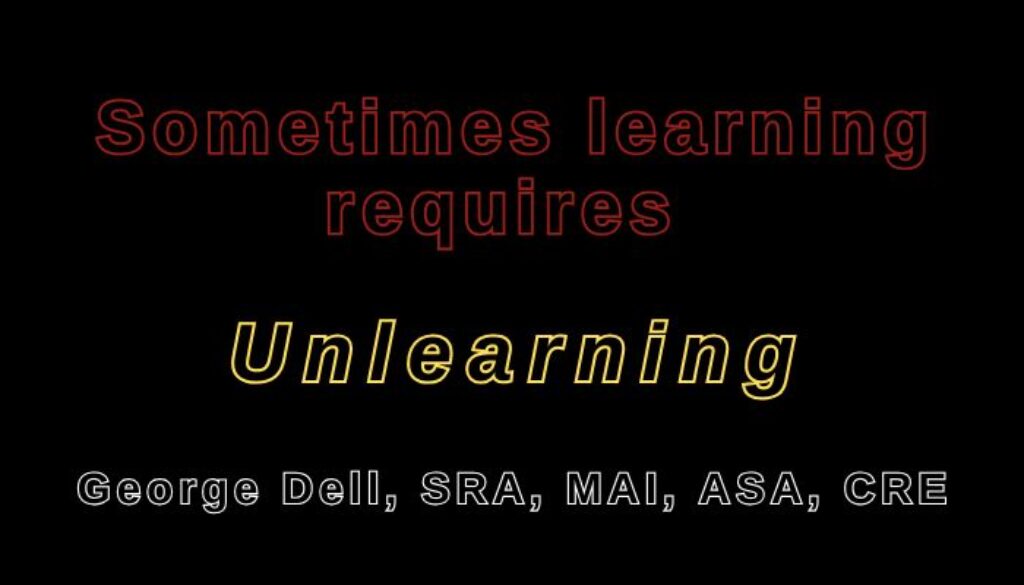I first heard the word unlearning at an AI national conference. The speaker said that unlearning was as important as learning. Perhaps more so.
We human beings tend to want to maintain the status-quo, unless somehow compelled to change. Change is not easy they say.
Psychological inertia involves inhibiting any action, just because it causes the stress of change. Status-quo bias avoids any change which might involve the thought of loss. The loss does not have to be real. Worse yet, even when the gain might be a great reward, we tend to stick with the old and proven.
This resistance to change is natural and primal. In our caveperson days, trying new things could result in danger or loss. Worse yet, it could be looked upon as a transgression upon our tribe – especially our tribal leaders who had worked so hard to create and preserve the old, reliable way. In fact, their ‘leadership’ perception relies on their need to be right. This need to be right, and respected, and revered – often transcends their need to leave a legacy of something better. Better to protect the old and proven, than take a chance on being wrong and forgotten.
A small assured gain overweighs a larger, but uncertain greater gain. And it takes effort!
A second factor is simple habit and preservation of effort. To change requires effort in and of itself. One of the ways humans are able to cope with brain power limits – is to not have to think about everything. Nearly all of our activities are ‘automatic’. We do not think about them. Once we have learned to ride a bicycle, we just ride the bicycle. We give no thought to which way to turn the handlebar or pedals. We just go.
Much easier.
And then there is the “endowment effect.” We tend to place greater value on what we already own. It is a sure thing. But we are afraid of that new thing. It may have hidden defects. We do not want to accidentally look a fool for adopting something new, when the old way would have worked perfectly well. (And we have loads of fellow-resisters to endorse our old ways.)
There you have it: ego, fear, loss of prestige, and fellow travelers.
Is it possible that such factors have created a world of economics where we have regular financial meltdowns?
As an individual, I can look at my ego, my fear of being wrong, and even the loss of some of my prestige – if I should happen to be wrong in learning something new. Perhaps I can resist the fear of discovering my old way is damaging to me, my family, my profession, and the public trust.
But it is hard.
The solution is hard. To stop our recurring economic problems, our prejudices, and fears – we must unlearn some old things. And we must ask some hard questions – such as: Are we truly even appraising to market value? Is “market value” what is really needed to assess risk and benefit to the homeowner, the lender, and our society? Do lenders and investors really need to know my opinion as of two weeks ago? An opinion based on information six months or a year ago? We think not.
Unlearning may help.

December 9, 2020 @ 11:44 am
Thanks George for this article as well as all of the thoughtful articles you publish. You have a gift for taking a complicated subject and presenting the ideas in a simple and understanding way, which is the gift and hallmark of a great teacher. Your word pictures are clear and memorable and your questions are thought provoking. I am grateful you are so generous with your insights and are cutting new inroads in our profession. Best wishes for the new year.
How Do I Move to EBV? - George Dell, SRA, MAI, ASA, CRE
May 17, 2023 @ 1:15 am
[…] provides an exciting learning path toward better service, personal satisfaction, and income […]